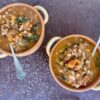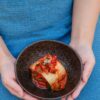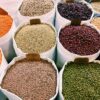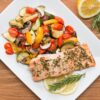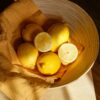Prostate Health 101:
You know that the prostate is a walnut-size gland that produces seminal fluid and is located just below the bladder, but did you know that good nutrition could help reduce the incidence of prostate cancer and can reduce prostate cancer progression?
Important information….
There are studies that have shown that daily meat consumption triples the risk of prostate enlargement.
Sugar and refined carbohydrate consumption appear to increase serum insulin levels, and serum insulin-like growth factor (IGF-I), which can lead to both the development and promotion of cancer.
A high fat diet stimulates increased testosterone levels, which is known to be associated with prostate cancer growth.
Evidence suggests that the balance between omega-6 fatty acids and omega-3 fatty acids can affect prostate tumors. The ratio between omega-6 and omega-3 fatty acids may be of great importance and can be modulated by diet. The optimum ratio of omega -6 to omega-3 appears to be 1:1 to 4:1.
While not all studies agree, there are many that have linked dairy and calcium consumption to prostate cancer risk.
One study reported obese men to have a 20% increased risk of dying from prostate cancer and those men who were severely obese had a 34% elevated risk.
One prospective study (a study which follows people over time) suggested that men in the highest category of exercise reduced their risk of advanced prostate cancer by 36% compared to the non-exercisers. The risk of dying from prostate cancer was reduced by 33%.
You need to know: Free Radicals and Antioxidants:
A free radical is an unpaired electron that is highly reactive and can cause tissue damage at a cellular level, accelerating the progression of cancer, heart disease and age-related diseases such as Alzheimer’s and Parkinson’s disease. Free radicals are a natural by product of oxygen metabolism, and most are either recycled or excreted. Exercise creates free radicals as does sunlight, pollution, smoking and even digestion. Normal processes in the body eliminate free radicals but if you’ve had a lot of activity that promotes free radicals, your body may not be able to eliminate all of them. Antioxidants quench free radicals by donating their own electrons to them and, simply put, the chain reaction of oxidation is broken. The best way to ensure adequate intake of the antioxidant nutrients is through a balanced diet consisting of 5-9 servings of vegetables and fruit per day, while avoiding foods that can increase free radical activity such as processed and refined foods and ‘bad’ fats.
So now, do this…..
Eat sensibly. Eat moderate-sized portions and keep your calories under control, so as to maintain a healthy weight.
Limit or eliminate red meat.
Limit dairy products.
Consume foods that are naturally low in fat and high in fiber—both of which act to keep testosterone at a healthy levels.
Increase the antioxidant lycopene in your diet. Lycopene is found in tomatoes and is more bioavailable when the tomatoes are cooked-think Marinara sauce. Watermelons, red grapefruit, papaya and red berries are also good sources. Lycopene is also good for your immune system.
Mix it up. Consume a wide variety of fruits and vegetables. A diet high in fruits and vegetables has been linked to a lower risk of various kinds of cancer.
Eating vegetables cruciferous foods such as broccoli, kale and cabbage may protect against prostate cancer.
Choose whole-grain foods, such as brown rice, quinoa and whole-wheat bread. Whole grains contain selenium, vitamin E and ample dietary fiber and a high-fiber diet is associated with a reduced risk of prostate cancer.
Drink alcohol in moderation, if at all. Studies show that regular heavy drinking increases the risk of aggressive prostate cancer.
Eat foods rich in omega-3 fatty acids. Good sources are cold-water fish such as salmon, herring and mackerel, walnuts, flax seeds and oil.
Chemicals in soy might help to prevent prostate cancer, although there is some controversy. Asian men have lower rates of prostate cancer and one explanation is that they eat more soy foods.
Drink green tea. Green tea contains antioxidants such as polyphenols that may help prevent certain cancers and other health problems.
Some studies suggest that vitamin D may help prevent prostate cancer, and many people are low in vitamin D-have your doctor check your vitamin D level to ascertain if a supplement is needed. Not many foods contain vitamin D, but fish liver oil, cheese and egg yolks contain some.
Quercetin, a bioflavonoid, may have positive effect in helping to prevent many different types of cancer, including prostate. It also contains anti-inflammatory properties, which may be helpful in relieving the pain of an inflamed prostate. Quercetin-rich foods include buckwheat, citrus fruits, apples, green tea, onions, raspberries, red wine, red grapes, broccoli, leafy green vegetables, and cherries.
The mineral selenium promotes the abundance of glutathione peroxidase, an antioxidant that is being researched for its role in prostate health. Selenium may also slow tumor growth by increasing immune cell activity and suppressing the development of blood vessels in cancer tumors. Brazil nuts, oysters, tuna, cod, black walnuts, wheat germ and eggs are selenium rich foods .
In prostatitis, zinc levels are only one-tenth of those of a normal prostate. Pumpkin seeds are a good source of zinc, (please consume them raw, not roasted) as are oysters, crab, garbanzo beans, turkey and nutritional yeast.
There is clinical evidence that Saw palmetto can help shrink the size of the prostate, and it may help promote healthy prostate function.
Vitamin E is known to reduce prostate inflammation and may protect against cancer. Good sources nuts and seeds, wheat germ and whole grains.
Drink plenty of water. Anyone with an enlarged prostate should drink plenty of water and other non-alcoholic fluids to flush the bladder.
Putting it all together….
For breakfast, have some oatmeal with blueberries and green tea.
Your snack could be Brazil nuts and some fresh berries.
A big salad and a sandwich made with whole-grain bread, sliced turkey, tomato and sprouts for lunch.
How does grilled salmon, brown rice and broccoli sound for dinner?
This one-day of prostate health offer delicious, nutritious foods that will keep you and your prostate healthy.










